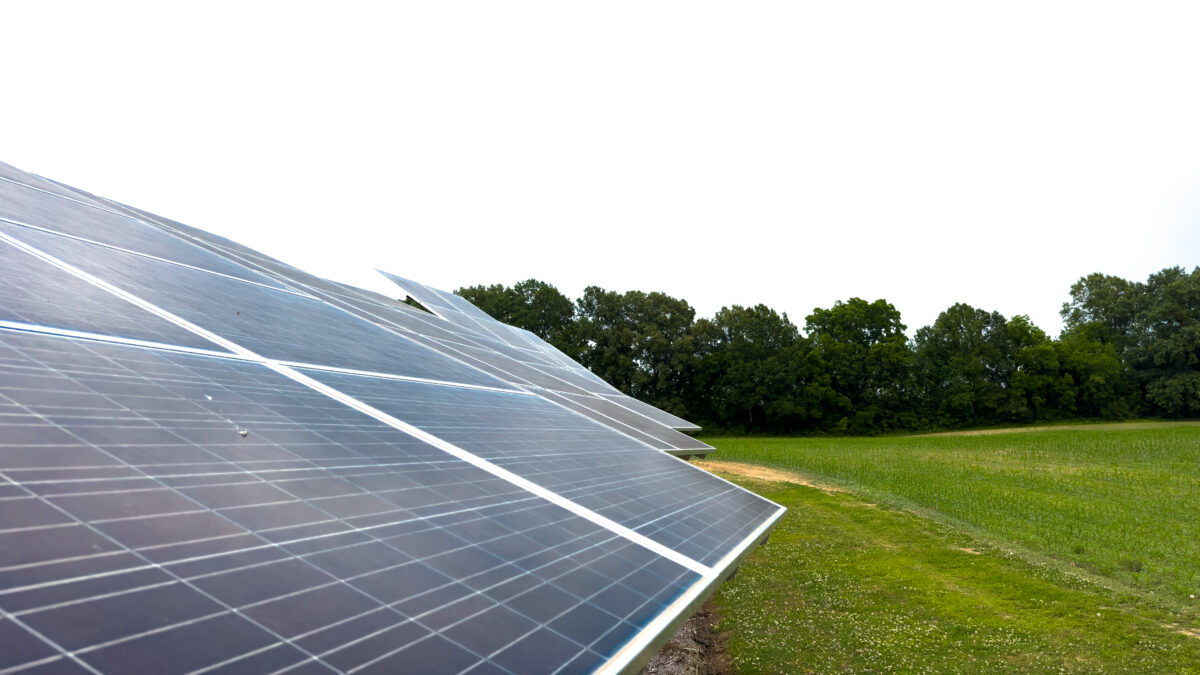Earth Day: Embracing Technology to Provide Food and Protect the Planet
Guest Author
Special Contributor to FB.org

photo credit: AFBF Photo, Morgan Walker
Guest Author
Special Contributor to FB.org
Earth Day (April 22) serves as a call to action, mobilizing individuals and organizations around the world to recognize the importance of protecting our natural resources. As the climate change debate has escalated in recent years, some of that focus has been on food.
As Rachel Kyte, the World Bank vice-president for climate change put it, "The public connects with these issues through food better than through any other issue ... we haven't been able to mobilize people by just telling them to drive a hybrid or switch the light off."
Agriculture has a bigger impact on the planet than any other human activity. To meet growing global demand for food, while reducing that impact, farmers must continue to increase the amount of food they produce while using fewer natural resources, which they've increasingly been doing for decades.
Some examples:
- In 1950, one acre of land grew enough wheat to bake about 670 loaves of bread. Today, that same acre of land yields enough wheat for 1,800 loaves.
- Tomato growers harvest more than 14 tons per acre today compared to less than six tons in 1960.
- A farmer raising a bushel of corn in 2011 used 40 percent less land, 50 percent less water, 40 percent less energy and saw 60 percent less erosion and 35 percent fewer greenhouse gases than in 1980.
- Since 1990, meat production has increased 50 percent, milk production went up 40 percent and egg production gained almost 33 percent.
Taking leadership in protecting the environment is a good thing, with some attempting to reduce their individual impact on the environment by changing the way they eat by choosing food that was organically produced. It is a growing trend and a great option for those who want to make that choice.
Many people feel good about purchasing food produced the old-fashioned way, but consider this. Check food prices from the 1920s and you'll find a dozen eggs cost 55 cents. Adjusted for inflation, we should be paying $7.45 for those eggs today. New technology adopted by farmers over the years is a key reason why prices for eggs and many other items have largely been kept in check. Farmers are producing more food on less land, using fewer natural resources. That's good for families and the planet.
Whether the world should be decreasing meat, milk and egg consumption is a fair conversation to have. But the reality is that a growing number of people around the world are no longer growing their food - they're buying it - and they can now afford and prefer food from animals. Meeting that demand means livestock and poultry producers must produce more using fewer natural resources.
Meat producers in the U.S. and elsewhere are making inroads and can provide a model for producers around the world. The Environmental Protection Agency says agriculture, including livestock production, accounts for about only 8 percent of total greenhouse gas emissions - lower than in other parts of the world (14 percent globally) due to improved breeding and feed practices and the adoption of modern technology.
As the World Bank asks, "What if all livestock farmers could become as efficient as the top 10 percent?"
People have a right to expect that their food is grown responsibly. Sixty years ago, the technologies of the Green Revolution paved the way for global agricultural productivity increases that saved the lives of an estimated billion people globally. In much the same way, the continued adoption of new technologies must be embraced if we're to see future improvements and protect our natural resources.
Charlie Arnot is CEO of The Center for Food Integrity (http://www.foodintegrity.org) and president of Look East, a consulting company with offices in Missouri and Iowa.
Trending Topics
VIEW ALL